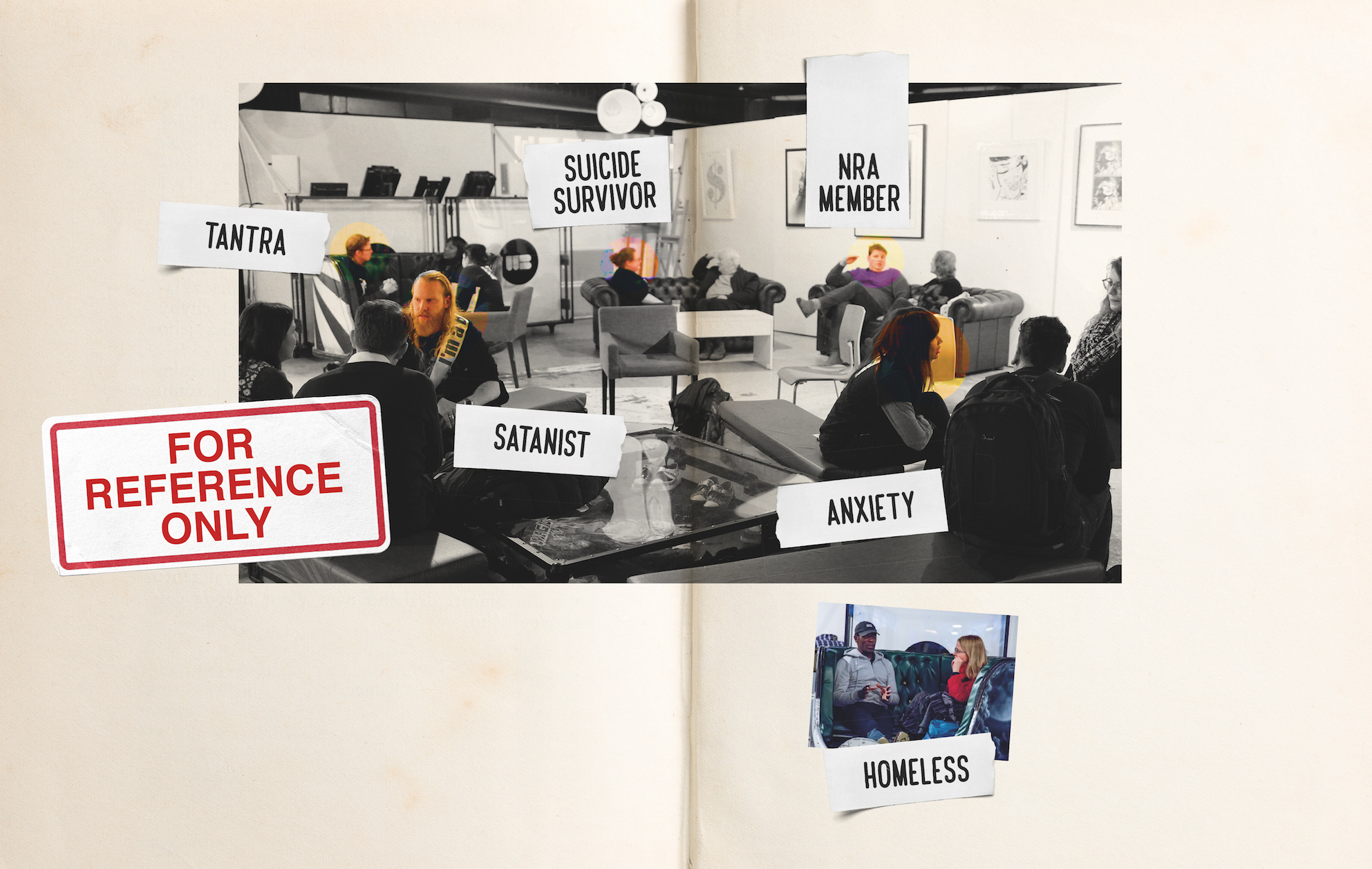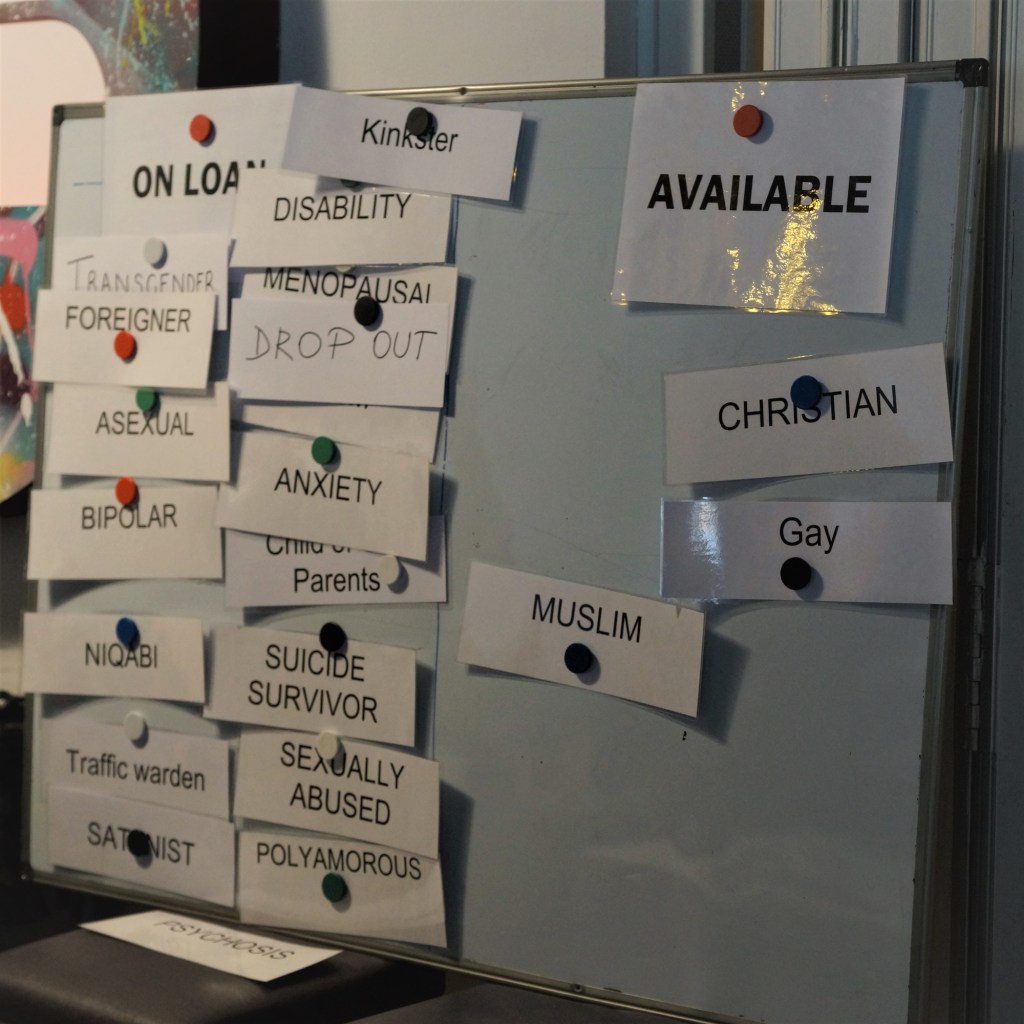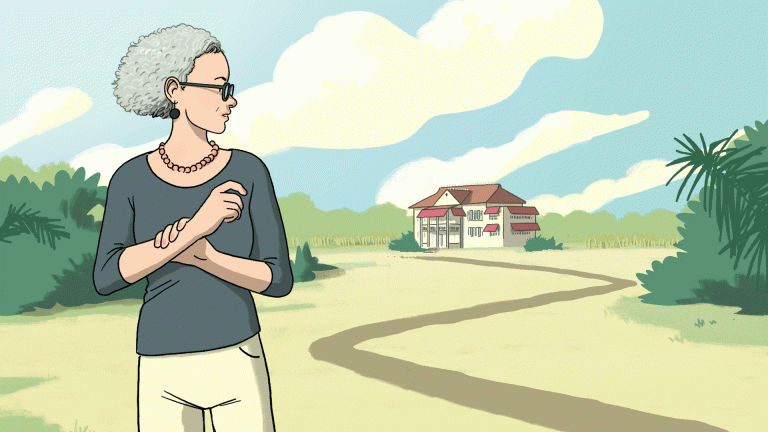Tunji is a homeless man sitting on a bookshelf, waiting to be borrowed. For now, he’s happy to chat with Squatter and Muslim about their mutual experiences, although their conversation is soon interrupted as Transgender rushes past them towards the balcony. “I’m gagging for a cigarette,” she says. It has been a long day in the Human Library.
But this Human Library isn’t from the pages of a Margaret Atwood novel. Instead, it’s just around the corner from a small Sainsbury’s in a London suburb, and it offers punters (or “readers”) the chance to chat with people (the “books”) who are not like them. Readers sit with these books, listen to their unique stories and ask them questions.
“The idea came to me to see if we could get people to sit down with someone they think they don’t like, unpopular types from the community,” says Ronni Abergel, who founded the Human Library with his brother at a music festival in 2000. Since then, the organisation has grown, and there are now libraries taking place in 80 countries worldwide.
Immigrant, Queer, Satanist, Kinky, Child Of Gay Parents, EU Migrant, Traffic Warden
At this Ladbroke Grove event, hosted by London-based non-profit Nova, there are more than 40 titles on the shelf, with each book summed up by a single provocative word: Immigrant, Queer, Satanist, Kinky, Child Of Gay Parents, EU Migrant, Traffic Warden and, in Tunji’s case, Homeless. Over the next five or so hours, and in spite of heavy snow outside, a stream of readers line up to borrow him.
So what do people want to ask a homeless person about homelessness? “The main issue that comes out is they want to know how do they help a homeless person,” says Tunji, towards the end of the event. “They talk about giving people money, they talk about maybe buying people food, but they’re not quite sure how to go about helping them.

“The readers I met were very open-minded and supportive, and were open to any insights I had. None of us are perfect, we’re all prone to make mistakes. One of the mistakes a human being could make may propagate into them being homeless, it could have that ripple effect. My readers were all looking for a way forward, and whether there was a solution.”










